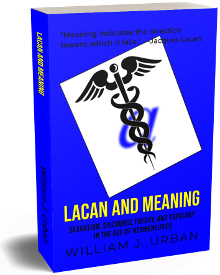The Subject of Freedom
in Kant’s Practical Philosophy
WILLIAM J. URBAN
The Formal Determination of the Will
and the Faculty of Desire
Another way to understand this is to consider what Kant calls the object of the faculty of desire [Objekt des Begehrungsvermögens] and its relation to the determination of the will. As we saw above, if the will only ever takes interest in the object of the action of that interest, the will would then be determined by an object Kant considers external to duty itself, in which case our conduct would never be anything but pathological. While we first find discussion of this new faculty of desire in the Grounding, it is expanded upon in much more detail in the second Critique. In the Preface to the latter work, he addresses the concerns raised in the critical reviews of the former work regarding this newly introduced faculty and in so doing, highlights its conceptual importance to his overall theoretical framework:
‘Life is the faculty of a being to act in accordance with laws of the faculty of desire. The faculty of desire is a being’s faculty to be by means of its representations the cause of the reality of the objects of these representations. Pleasure is the representation of the agreement of an object or of an action with the subjective conditions of life, i.e., with the faculty of the causality of a representation with respect to the reality of its object.’ (CPrR 5: 9–10)
If the faculty of desire has such enormous importance as to be essentially equated with life itself, but at the same time one’s desire for the object of this faculty is illegitimate when it comes to considering the ethical, what exactly does the ethical involve? Here we encounter the familiar idea that Kant’s ethics must involve an implicit demand for the subject to continually purify himself from everything pathological. Again, the accusation is that Kant advocates an ascetic lifestyle as that which best facilitates an asymptotic approach to the ethical Ideal. However, in his Remarks to the first chapter which shortly follows the above quote, he provides us with a quite different solution. He directly critiques the commonplace belief of his contemporaries that the distinction between the ‘higher’ and ‘lower’ faculty of desire maps directly onto the divisions of discursive cognition as he sets them out in the first Critique. Kant tells us that ‘whether the representations that are connected with the feeling of pleasure have their origin in the senses or in the understanding... it does not matter at all where the representation of this pleasing object comes from but only how much it pleases.’ What might surprise the reader of this passage is that this is true ‘even of reason.’ (CPrR 5: 23) Kant is insisting that even when we take pleasurable interest in engaging in high abstract reasoning, such intellectual pleasures are still pleasures and it is of no consequence how refined or spiritual we hold them to be in contrast to our more immediate, sensuous pleasures. In fact, our pleasures can involve considerable delay or sacrifice of satisfaction, or be quite intangible, such that ‘we can find satisfaction in the mere exercise of our powers [and] in consciousness of our strength of soul in overcoming obstacles opposed to our plans.’ (CPrR 5:24)
So again, if Kant rules out a gradual elevation of the will9 by leaving behind our so-called ‘lower instincts’ to pursue goals more refined and noble, how does one attain the realm of the ethical? Kant is preparing us to appreciate the necessity of conceiving a sharp break or paradigm shift in relation to the pathological in order to reach the level of the ethical. We will examine this notion of a break much more closely below when we discuss the paradoxes surrounding the subject’s choice of his own unconscious disposition (Gesinnung) and the freedom involved in its constitution. For now, we can turn to his conclusion that if the expression of a ‘higher faculty of desire’ is to be meaningful at all, it must be used to indicate the fact that pure reason is already practical and that which ‘determines the will immediately, not by means of an intervening feeling of pleasure… is what alone makes it possible for it to be lawgiving.’10 (CPrR 5:25) In effect, Kant has established the logical necessity of an a priori faculty of desire, for the will of the subject must (also) be determined by ‘pure desire,’ which is a desire not for a particular object but rather one that aims at the very act of desiring.11 (Zupančič 2000: 11)
Lacanian-themed puzzles

